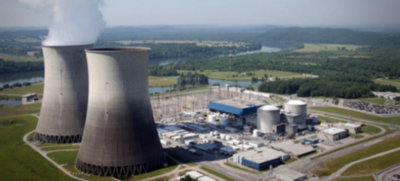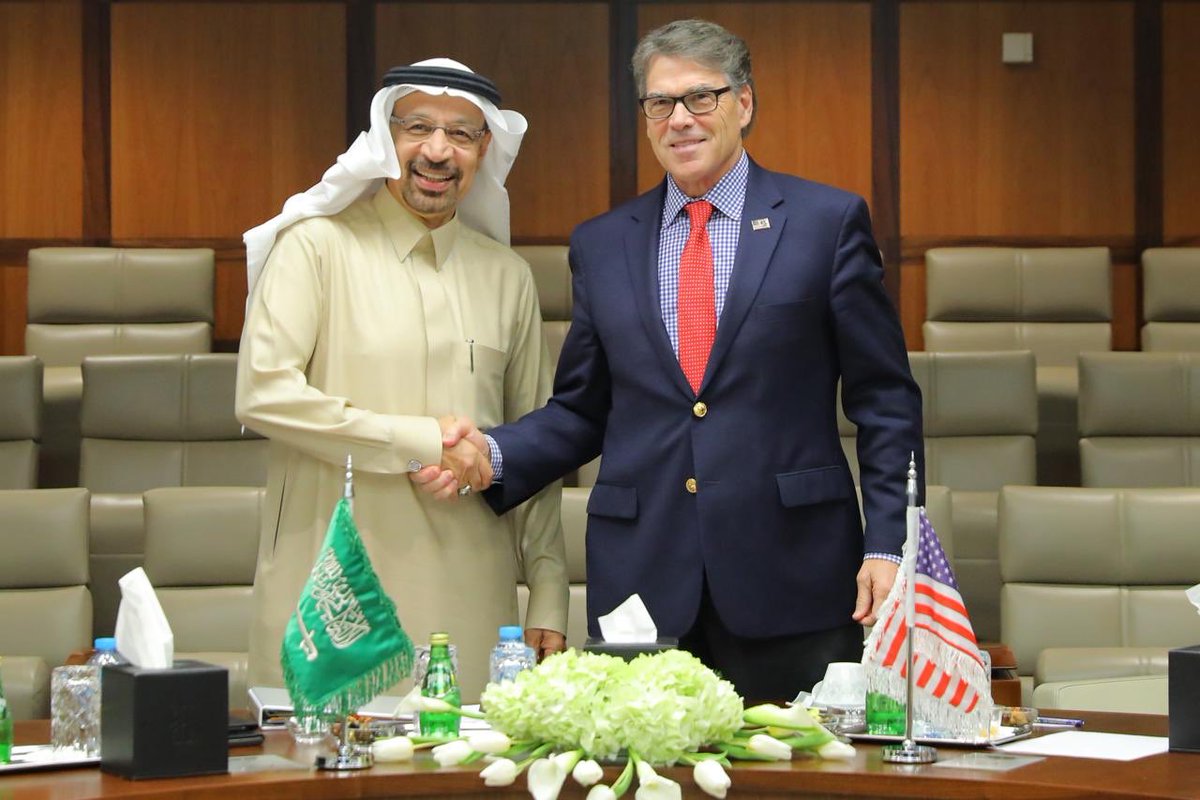The Trump administration has approved seven applications for U.S. companies to sell nuclear power technology and assistance to Saudi Arabia, but did not reveal the particular companies or specifics of those authorizations, the Energy Department said Thursday.
Energy Secretary Rick Perry told the Senate Armed Services Committee that the seven applications approved were among 37 total nuclear applications approved since January 2017, with nine in the Middle East (two were for Jordan), according to the Associated Press.

The nuclear approvals, known as Part 810 authorizations, allow companies to do preliminary work on nuclear power.
Perry’s approval of the applications and his comments before lawmakers come at a sensitive time for U.S.-Saudi relations, especially on Capitol Hill as anger simmers over the killing of Jamal Khashoggi in Istanbul, the ongoing war in Yemen, and human rights cases in Saudi Arabia.
According to Reuters, Perry told lawmakers that he did not know whether any of the approvals he authorized for U.S. companies to sell nuclear power technology to Saudi Arabia were made after the killing of journalist Jamal Khashoggi in October last year.
“We sign a lot of papers,” he said. “I’ve got a pretty good memory, but to remember every date that I sign a piece of paper might be above my ability to recall.”
The Energy department did not release specifics on the seven authorizations for exports to Saudi Arabia because they contained proprietary information for the companies, the names of which have not been released, Reuters reports.
“Secretary Perry has issued thirty-seven Part 810 authorizations to U.S. companies allowing them to export unclassified civil nuclear technology to 16 countries. This includes seven authorizations for exports to Saudi Arabia. A Part 810 authorization does not authorize the transfer of nuclear material, equipment or components. The specifics of these authorizations have not been made public because the companies determined that the authorizations contain proprietary business information. No enrichment or reprocessing technology has been authorized to Saudi Arabia,” the Energy department said in a statement.
The Energy department noted that part 810 authorizations and 123 agreements are two distinct and different processes based on two separate sections of the Atomic Energy Act. The Part 810 process controls the export of unclassified nuclear technology and assistance. It enables nuclear trade by assuring that nuclear technologies exported by U.S. companies are used only for peaceful purposes. The authorization process involves a thorough interagency review that requires the Department of Energy to secure the concurrence of the Department of State, and consult with the Departments of Defense and Commerce, and the Nuclear Regulatory Commission, the DOE said.
“Separately, a 123 agreement is the legal mechanism that allows the Nuclear Regulatory Commission to license the export of nuclear material, equipment and components from the U.S. The Nuclear Regulatory Commission is the licensing authority for exports under 123 Agreements. The U.S. has been in ongoing discussions with Saudi Arabia regarding a potential 123 agreement since 2012, and these discussions continue today. All 123 agreements undergo rigorous Congressional review, including 90 days of continuous session review by the House Foreign Affairs Committee and the Senate Foreign Relations Committee.”









